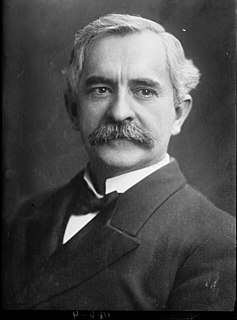A Quote by Stasi Eldredge
The word ezer is used only twenty other places in the entire Old Testament. And in every other instance the person being described is God himself, when you need him to come through for you desperately.
Related Quotes
It's not as if the New Testament writers came along and said, "The culmination of Old Testament books is more books, New Testament books." In some ways they thought instead of the culmination of Old Testament books being Christ himself, the word incarnate as the opening verses of Hebrews 1 put it. In the past God spoke to the fathers by the prophets, but in these last days he has spoken to us by his son and the son is revelation.
Listening is a rare happening among human beings. You cannot listen to the word another is speaking if you are preoccupied with your appearance, or with impressing the other, or are trying to decide what you are going to say when the other stops talking, or are debating about whether what is being said is true or relevant or agreeable.
Such matters have their place, but only after listening to the word as the word is being uttered.
Listening is a primitive act of love in which a person gives himself to another’s word, making himself accessible and vulnerable to that word.
It fits to glorify God - it not only fits reality, because God is infinitely and supremely praiseworthy, but it fits us as nothing else does. All the beauty we have looked for in art or faces or places - and all the love we have looked for in the arms of other people - is only fully present in God himself. And so in every action by which we treat him as glorious as he is, whether through prayer, singing, trusting, obeying, or hoping, we are at once giving God his due and fulfilling our own design.
We are not to make the Torah into God Himself, nor the Bible into a "paper pope." The Bible is only the result of the Word of God. We can experience the return of the Word of God in the here and now, the perpetual return of the actual, living, indisputable Word of God that makes possible the act of witnessing, but we should never think of the Bible as any sort of talisman or oracle constantly at our disposal that we need only open and read to be in relation to the Word of God and God Himself.
Many who are convinced that God is non-violent simply dismiss the Old Testament accounts of God commanding or engaging in violence. I don't consider this to be a viable option, for Jesus treats the whole Old Testament as the inspired Word of God. My cross-centered interpretation of these violent portraits allows believers to affirm that God is non-violent while also affirming that all Scripture is "God-breathed.".
The subject who speaks is situated in relation to the other. This privilege of the other ceases to be incomprehensible once we admit that the first fact of existence is neither being in itself nor being for itself but being for the other, in other words, that human existence is a creature. By offering a word, the subject putting himself forward lays himself open and, in a sense, prays.
Consider the idea of a God who is essentially sadness and longing, yearning to reveal himself, to know himself through a being who knows him, thereby depending on that being who is still himself - yet who in this sense creates Him. Here we have a vision which has never been professed outside of a few errant knights of mysticism. To profess this essential bipolarity of the divine essence is not to confuse creator and created, creature and creation. It is to experience the irrevocable solidarity between the Fravarti and its Soul, in the battle they undertake for each other`s sake.
When we think of God, we are apt to think of Him in human form. In the Epiphanies of the Old Testament God revealed Himself to Joshua and others in human form. He puts Himself within the compass of our highest conception, in order that He may make Himself real to us in His love and sympathy and power.
If prayer is only a spasmodic cry at the time of crisis, then it is utterly selfish, and we come to think of God as a repairman or a service agency to help us only in our emergencies. We should remember the Most High day and night-always-not only at times when all other assistance has failed and we desperately need help.
If I love the other person, I feel one with him or her, but with him as he is, not as I need him to be as an object for my use. Respect thus implies the absence of exploitation: it allows the other to be, to change and to develop 'in his own ways.' This requires a commitment to know the other as a separate being, and not merely as a reflection of my own ego. According to Velleman this loving willingness and ability to see the other as they really are is foregrounded in our willingness to risk self-exposure.
When religion has said its last word, there is little that we need other than God Himself. The evil habit of seeking God-and effectively prevents us from finding God in full revelation. In the and lies our great woe. If we omit the and we shall soon find God, and in Him we shall find that for which we have all our lives been secretly longing.
You must pray for yourself constantly. How could it be otherwise? We worship God by believing in Him, trusting Him, and loving Him wholeheartedly - and we can attain to that only through prayer. The sole object of our being here is that we may grow like Him - and we can do that only through prayer. The more we pray for ourselves the more power will our prayers have for any other purpose whatever; so praying for ourselves is the reverse of selfishness - it is truly glorifying God.
To be in a relationship with God is to be loved purely and furiously. And a person who thinks himself unlovable cannot be in a relationship with God because he can't accept who God is; a Being that is love. We learn that we are lovable or unlovable from other people. That is why God tells us so many times to love each other.



































